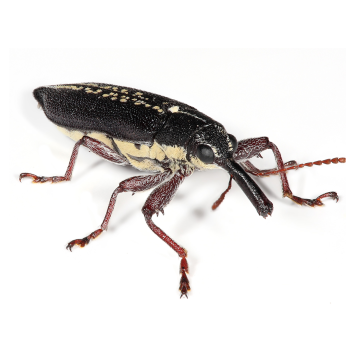Food Pest Control
Food pests will happily eat the contents of your kitchen cupboards, warehouse or manufacturing plant. Known as ‘stored product’ pests they will decimate stocks of nuts, rice, pasta, semolina, roasted nuts, dried fruit, chocolate, flour, wheat, barley, seeds, pulses and other bulk products. Common pests include biscuit beetles, Indian meal moth, flour beetles, dried fruit beetles, flour mites, warehouse moths and spider beetles.
How to identify a food pest problem
Food pests come in a variety of sizes, from microscopic flour mites, through to ladybird sized biscuit beetles and up to 1 cm stored product moths.
Like a lot of pests it is often the larvae, rather than the adult, that does the damage. The larvae will gnaw their way through cardboard packets into packets of dried soup. Once food pests are established they will be extremely difficult to eradicate.
How to get rid of food pests
If you think you have a stored product pest problem go to the back of all food cupboards, empty them out and examine every packet. This is particularly important for any products that may be open. Get rid of everything that's out of date and then, once the cupboards have been emptied, clean the cupboards out thoroughly.
Get rid of any food residues that may be in the hinges, around the cracks and crevices at the back of the shelving and in cupboards. Then carry out a disinfectant scrub down and clean, paying particular attention to the back of the cupboards.
Successful treatment involves a combination of cleaning and spraying. If you are unsuccessful, our food pest control services are experienced and highly qualified to deal with food pest infestations from commercial premises to domestic homes. It sounds a simple enough solution but, invariably, the larger the premises that is infested the more challenging it will be to eradicate.
Contact us today for more information and advice about food pest control services >
Photo: Fir0002/Flagstaffotos / GFDL 1.2 via Wikimedia Commons
